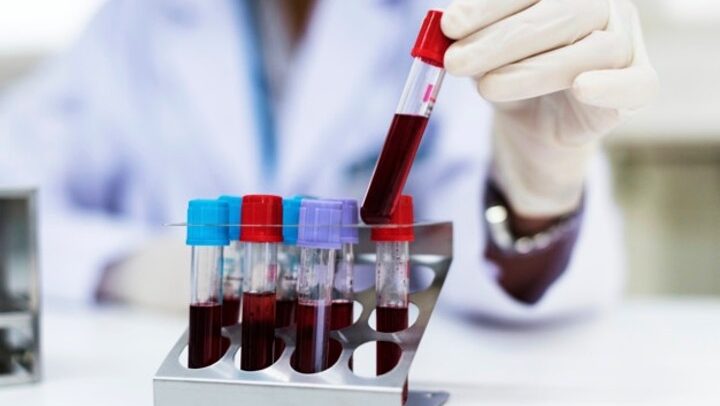A new study has introduced a groundbreaking screening method that combines laser analysis with artificial intelligence (AI) to identify breast cancer in its earliest stage, known as stage 1a.
This technique, developed by researchers at the University of Edinburgh, offers a fast and non-invasive approach to detect subtle changes in the bloodstream that occur in the initial phases of the disease, which current tests cannot detect. The method works by optimizing Raman spectroscopy, a laser analysis technique, and combining it with machine learning, allowing for early detection and potential screening of multiple forms of cancer.
In the pilot study, titled “Subtype-Specific Detection in Stage Ia Breast Cancer: Integrating Raman Spectroscopy, Machine Learning, and Liquid Biopsy for Personalised Diagnostics” published on The Journal of Biophotonics, the technique showed impressive results, with a 98% effectiveness in detecting stage 1a breast cancer using blood plasma samples from 12 breast cancer patients and 12 healthy controls. The method was also able to accurately distinguish between the four main subtypes of breast cancer with over 90% accuracy, which could lead to more personalized and effective treatments. Unlike traditional breast cancer tests, which typically rely on physical exams, biopsies, and scans, this new approach could improve early detection and monitoring of the disease, making it a promising tool for cancer screening.

Disease testing
Standard tests for breast cancer include physical examinations, x-rays (mammograms), ultrasound scans, and biopsies, where a sample of breast tissue is analyzed for the presence of cancer cells. These tests are commonly used to detect breast cancer, particularly in individuals who show symptoms or are part of high-risk groups. Existing early detection strategies generally rely on screening individuals based on age (for example, women over 40) or specific risk factors, such as a family history of breast cancer, genetic mutations (like BRCA1/BRCA2), or previous cancer diagnoses. However, these traditional methods may not always detect cancer in its very earliest stages, which is why new technologies, such as the laser and AI-based method mentioned earlier, are being explored to improve early detection.
Blood Samples
The new technique shines a laser beam into blood plasma taken from patients. The laser interacts with the blood, and the properties of the light are analyzed using a spectrometer. This analysis reveals tiny changes in the chemical make-up of cells and tissues, which can indicate early signs of disease. A machine learning algorithm then interprets the data, identifying similar features to help classify the samples and detect disease at its earliest stages.
Early diagnosis
The pilot study, which involved 12 samples from breast cancer patients and 12 healthy controls, showed that the technique was 98% effective at identifying breast cancer at stage 1a. The test could also distinguish between the four main subtypes of breast cancer with an accuracy of over 90%, enabling more personalized and effective treatments for patients.
By implementing this method as a screening test, it could help identify people in the earliest stages of breast cancer, improving the chances of successful treatment. The team plans to expand the study to include more participants and test for early forms of other cancer types.
About the Author of the Study – Kevin Saruni Tipatet
Kevin Saruni Tipatet is a prominent researcher and academic in the field of bioengineering, currently based at the Institute for BioEngineering in the School of Engineering at the University of Edinburgh, UK. He holds both a Bachelor of Science (BSc) and a Master of Science (MSc) degree, specializing in biomedical engineering, nanomaterials, and cutting-edge technologies in healthcare. His academic background provides a solid foundation for his multidisciplinary approach to tackling complex medical challenges through bioengineering solutions.

As an instructor, Tipatet teaches the Master’s-level course “Nanomaterials in Chemical and Biomedical Engineering,” where he educates students about the role of nanomaterials in advancing medical technologies. His course is designed to bridge the gap between engineering and biological sciences, focusing on the development of materials for medical applications such as drug delivery systems, diagnostic tools, and tissue engineering. This reflects his deep commitment to fostering the next generation of engineers who can apply innovative solutions to real-world healthcare problems.
Tipatet’s research interests lie at the intersection of bioengineering, molecular medicine, and technology. His primary focus is on the genetics and molecular mechanisms of cancer, with an emphasis on how bioengineering tools can aid in early detection and treatment. He is also heavily involved in nanomedicine, exploring how nanomaterials can be harnessed for targeted therapies. Additionally, his work in vibrational spectroscopy allows him to study the molecular properties of cells and tissues, contributing to the development of advanced diagnostic techniques for diseases, particularly cancer.
In addition to these areas, Tipatet is integrating machine learning into his research, using artificial intelligence to analyze complex biological data and enhance disease detection and treatment. By applying machine learning to molecular signatures, Tipatet aims to develop precision medicine strategies that offer tailored treatments based on a patient’s genetic and molecular profile. His work, which combines engineering, biotechnology, and data science, is helping to shape the future of medical diagnostics and personalized healthcare, with a special focus on cancer.

